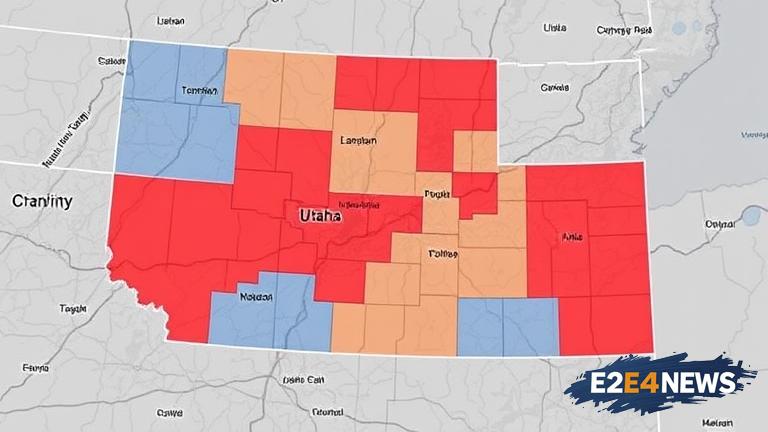In a significant ruling, a Utah judge has ordered the state to redraw its congressional maps for the 2026 election. The decision comes after a lawsuit was filed alleging that the current districts were gerrymandered to favor one political party. The judge found that the existing maps were indeed unconstitutional and ordered the state to create new districts that are more representative of the population. This ruling has significant implications for the upcoming election, as it could potentially shift the balance of power in the state’s congressional delegation. The current maps were drawn in 2021, but the judge found that they were not compliant with the state’s constitution. The ruling is a major victory for voting rights advocates, who have been fighting against gerrymandering in Utah and across the country. Gerrymandering is the practice of manipulating electoral district boundaries for political gain, and it has been a major issue in many states. The Utah judge’s ruling is one of several recent decisions that have found gerrymandering to be unconstitutional. The new maps will need to be drawn in a way that is fair and representative of the state’s population. This will likely involve creating districts that are more compact and contiguous, rather than being drawn to favor one party or another. The ruling is also a significant development in the ongoing debate over voting rights and election reform. Many advocates are pushing for reforms that would prevent gerrymandering and ensure that electoral districts are drawn in a fair and transparent way. The Utah ruling is a major step forward in this effort, and it could have implications for other states that are also grappling with gerrymandering. The 2026 election is shaping up to be a major test of the new maps, and it will be closely watched by voting rights advocates and politicians alike. The ruling has also sparked a debate over the role of the judiciary in shaping electoral districts. Some argue that the judiciary should not be involved in the process of drawing electoral districts, while others see it as a necessary check on the power of politicians. The Utah judge’s ruling is a significant example of the judiciary’s role in ensuring that electoral districts are fair and representative. The ruling has also highlighted the importance of independent redistricting commissions, which are designed to draw electoral districts in a fair and impartial way. Many states have established such commissions, and they have been shown to be effective in preventing gerrymandering. The Utah ruling is a major victory for those who are pushing for independent redistricting commissions and other reforms to prevent gerrymandering. The decision is also a significant development in the ongoing effort to protect voting rights and ensure that all citizens have an equal voice in the electoral process. The ruling has sparked a renewed debate over the importance of voting rights and the need for reforms to prevent gerrymandering. Many advocates are pushing for a comprehensive overhaul of the electoral system, including reforms to prevent gerrymandering and ensure that all citizens have access to the ballot. The Utah ruling is a major step forward in this effort, and it could have significant implications for the future of voting rights in the United States. The ruling has also highlighted the importance of civic engagement and participation in the electoral process. Many advocates are pushing for increased voter registration and turnout, as well as greater transparency and accountability in the electoral process. The Utah ruling is a significant example of the impact that civic engagement can have on the electoral process, and it highlights the importance of continued advocacy and activism on behalf of voting rights. The decision is a major victory for those who are fighting to protect voting rights and ensure that all citizens have an equal voice in the electoral process. The ruling has sparked a renewed debate over the importance of voting rights and the need for reforms to prevent gerrymandering. Many advocates are pushing for a comprehensive overhaul of the electoral system, including reforms to prevent gerrymandering and ensure that all citizens have access to the ballot. The Utah ruling is a major step forward in this effort, and it could have significant implications for the future of voting rights in the United States.
